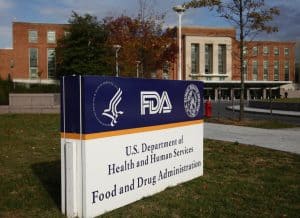
Kite Pharma climbs on strong data showing in lymphoma trial
pharmafile | March 1, 2017 | News story | Research and Development | kite pharma, non-Hodgkin lymphoma
Kite Pharma released the news on Rare Diseases Day promising top-line data from a Phase 1/2 trial of its treatment for various types of non-Hodgkin lymphoma. The results displayed that approximately a third of patients had experienced a complete response, with all signs of cancer removed from the body, after six months of treatment.
The particular drug used in the trial, axicabtagene ciloleucel, is a referred to as CAR-T therapy – a treatment that is engineered in a laboratory through the use of the patient’s own immune cells. The laboratory uses the blood given by patients, filters out the T-cells and alters them to target cancer cells before reinfusing them back into the patient.
This form of treatment was particularly significant because it was able to offer a lifeline to patients in the trial who had exhausted all other standard therapeutic options. In most cases, patients survive around six months after failing to respond to treatment options. It was found to be effective in multiple types of aggressive NHL, including diffuse large B-cell lymphoma, as well as primary mediastinal B-cell lymphoma and transformed follicular lymphoma.
In Kite’s trial, more than half of participants were still alive after the six month stage, suggesting that overall survival rates had improved – though this won’t be confirmed until full data is revealed. The next step for Kite is to file with the FDA, with some experts commenting that it may be able to receive approval by the end of the year
“These results with axicabtagene ciloleucel are exceptional and suggest that more than a third of patients with refractory aggressive NHL could potentially be cured after a single infusion of axicabtagene ciloleucel,” said Jeff Wiezorek, Senior Vice President of Clinical Development.
The results are as strong as Wiezorek implies, especially given there were no further issues with safety. Of the 101 patients who originally began the trial, three in total died from causes unrelated to disease progression – two of which were linked to the treatment. This was originally reported back in September and there have been no further instances.
It is part of the risk of the treatment, which can cause a side-effect named cytokine release syndrome whereby the immune system becomes overactive and produces a systemic inflammatory response. The doctors in charge of the trial were found to be able to better recognise these side-effects and the numbers of patients suffering side-effects fell as the study progressed.
The upshot for Kite is a huge boost in investor confidence; it has seen a share price increase by 24.5% at the close of market.
Ben Hargreaves
Related Content

EMA’s CHMP recommends conditional approval for Kite Pharma’s CAR T therapy for mantle cell lymphoma
Kite Pharma’s anti-CD19 chimeric antigen receptor (CAR) T cell therapy known as KTE-X19 has received …

Kite secures FDA approval for second CAR T therapy Tecartus in relapsed or refractory mantle cell lymphoma
Kite Pharma has chalked up another regulatory success for its parent company Gilead with the …

Gilead subsidiary Kite Pharma to open CAR-T manufacturing facility in Maryland
Gilead Sciences subsidiary Kite Pharma has announced plans to open a new CAR-T manufacturing facility …








